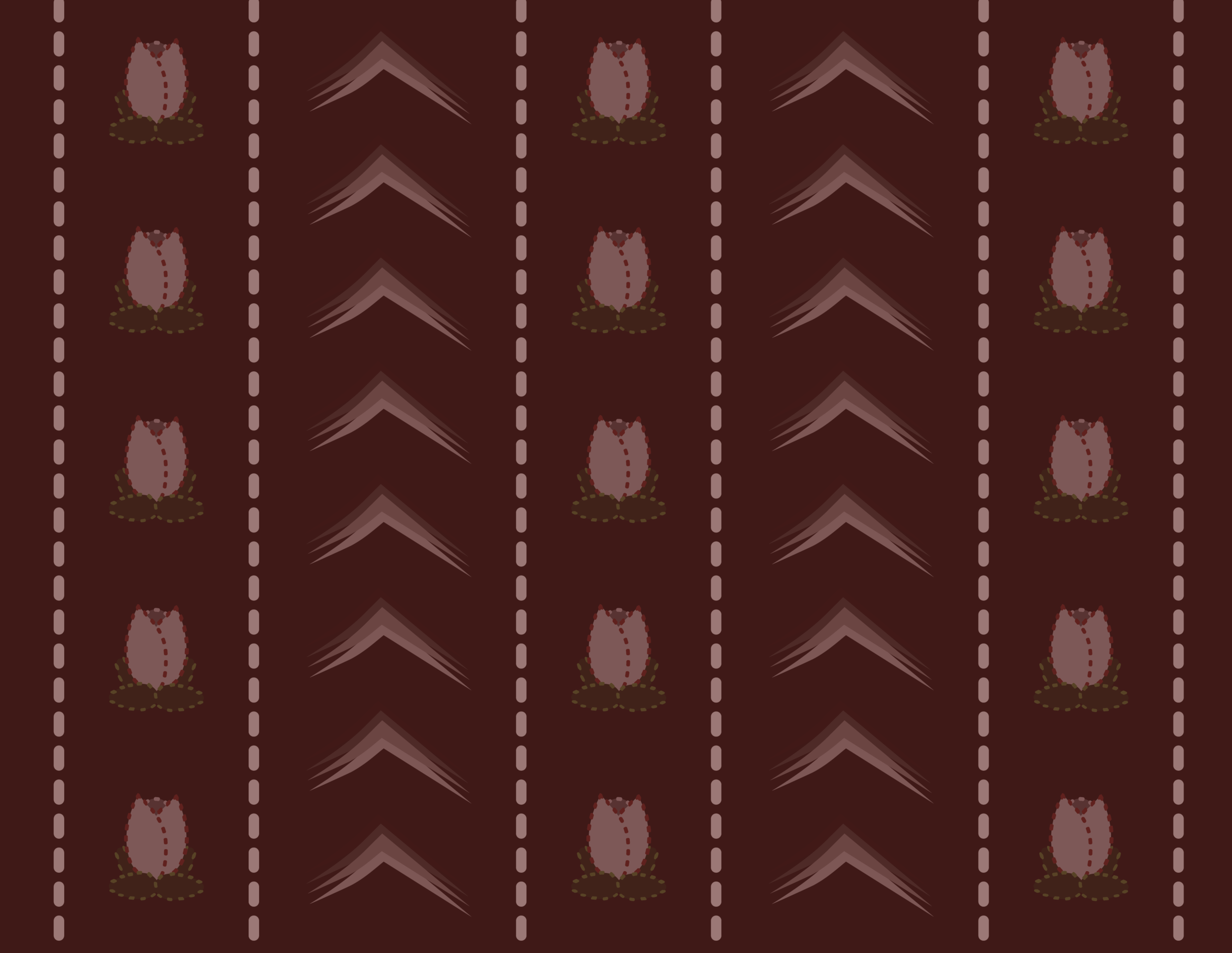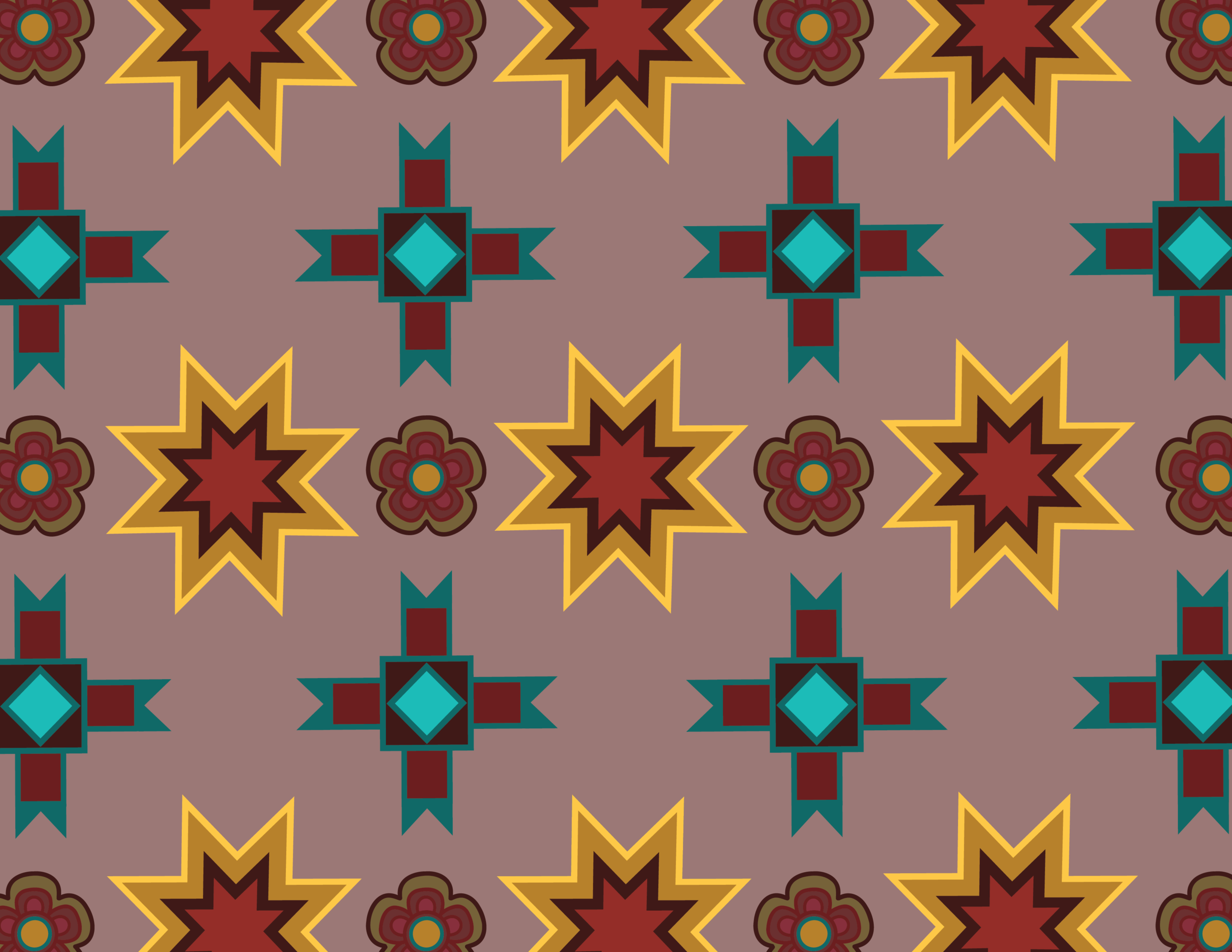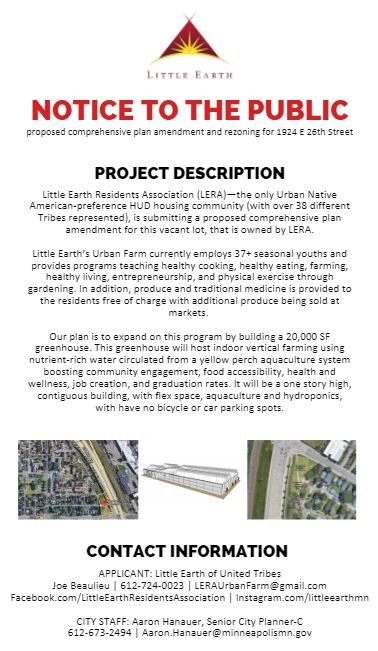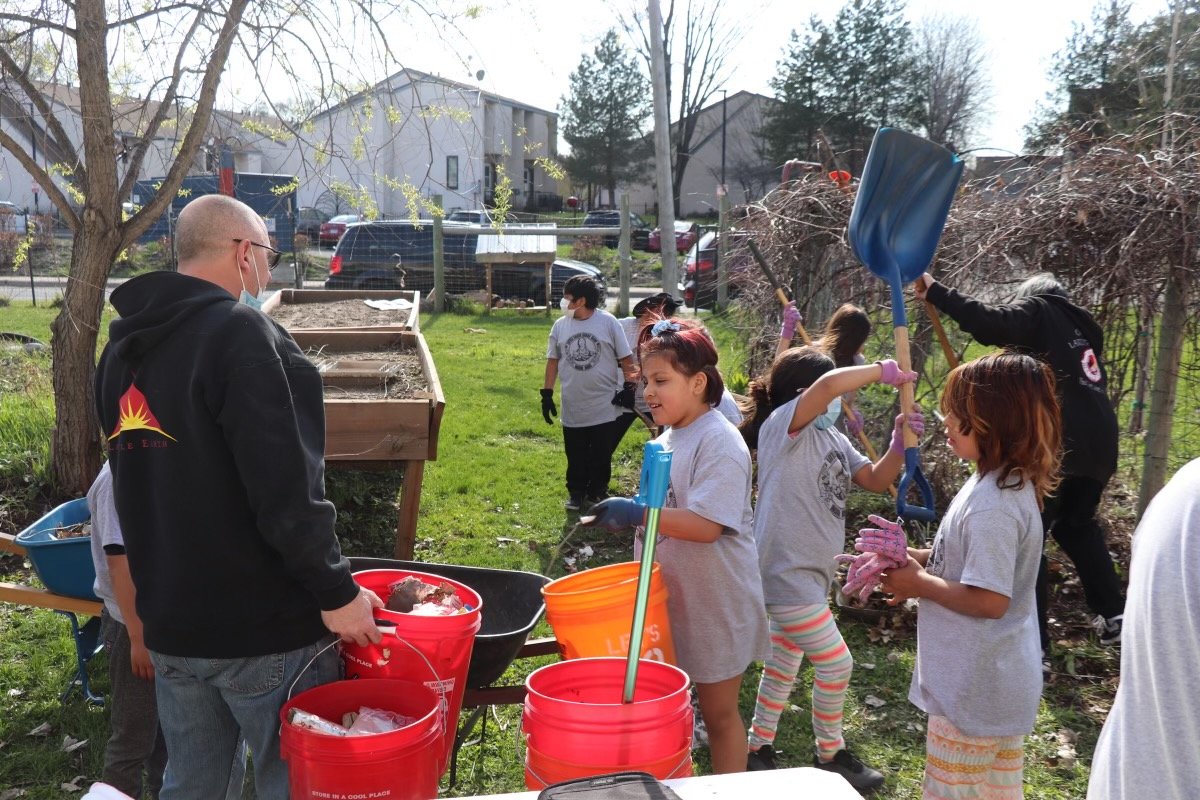
THE LITTLE EARTH
URBAN FARM

Support Our Innovation Hub!
The Little Earth Urban Farm (a LERA program) began in 2010 to inspire hope, nurture growth, uphold cultural traditions, and improve the health of Native families that have experienced generations of systemic oppression and provide a physical cultural connection.

Our Farm History
Little Earth Farm, circa 2010

Our Programs.
Youth Workforce Development
Each growing season Farm Manger Chad Hebert begins the Urban Farm Youth Workforce Development Program. This program is a paid internship opportunity for youth ages 6-17 to work alongside Mr. Herbert for the growing season for 8-10, hours per week. Youth learn teamwork, accountability, and respect along with farm-specific skills such as planting, harvesting, and distribution. The program has proven extremely popular among the community as over 50 youth applied for 23 positions in the 2021 season.

Veggie RX
It all begins with culturally-relevant produce. The Little Earth Veggie RX program aims to reduce A1C levels for individuals with Type 2 Diabetes. This year-long program follows 25 Little Earth families as they learn how to grow, prepare, and cook weekly CSA produce. We are proud to partner with: the Native American Community Clinic, University of Minnesota Extension, and the Little Earth Urban Farm!

Native Innovation
Little Earth residents live within a food desert, lacking access to affordable and culturally-relevant foods. According to the Minnesota Department of Health, Native peoples within Minnesota are four times as likely to die of diabetes than white Minnesotans, and heart disease death rates were 48% higher in Native populations as compared to whites. The Urban Farm works to lessen these health disparities by providing our community with access to organic fruits, vegetables, and the four Native Sacred Medicines cedar, tobacco, sweetgrass, and sage. The farm also provides a place to heal from generational trauma and revitalize cultural traditions.
Our farm has struggled with poor soil quality within the Little Earth community due to its location within the urban industrial core and is referred to as the “Arsenic Triangle”. In the 1930’s, due to increased agricultural production, arsenic was dumped into our soil. Over the past 10 years the city has extracted over 18 inches of soil, declassifying the Urban Farm as a Superfund site in 2019. The solution has been to use raised beds to ensure the safety of our food.
The Urban Farm also provides an outlet and opportunity for growth for many of our resident youth. Each growing season Farm Manger Chad Hebert begins the Urban Farm Youth Workforce Development Program. This program is a paid internship opportunity for youth ages 6-17 to work alongside Mr. Herbert for the growing season for 8-10 hours per week. Youth learn teamwork, accountability, and respect along with farm-specific skills such as planting, harvesting, and distribution. The program has proven extremely popular among the community as over 50 youth applied for 23 positions in the 2021 season.
Renewable Energy
Little Earth Urban Farm plans to incorporate the use of renewable energy through solar power in its vision for an onsite innovation lab for research and development of techniques to benefit a scalable global model for urban farms.
Aquaponics
Little Earth Urban Farm, in cooperation with the University of Minnesota, is currently exploring the use of aquaponics in the lab for dual purpose Native nutritional sources with both the cultivation of fresh fish through complete lifecycle, and the benefits of fish ecosystems for the growth of fresh fruits and vegetables.

Social Justice Impact

"In (2020) with access to food being small and very difficult especially with COVID and access to public transportation, the Little Earth Farm was incredibly important in distributing fresh high quality produce that really didn't exist outside of the community."
— Chad Hebert, Little Earth Urban Farm Program Manager
"This farm gives us the empowerment we need to open doors, to have a different opportunity in life."
— Rita Ortega, Little Earth Protector

100 Days of Food Security at Little Earth
Little Earth provides access to fresh foods for over 1200 residents, and since 2020, has developed a “100 day Food Security Initiative” to safeguard the community against natural and urban disasters.
Little Earth as a Farm to Fork Indigenous Food Source
Partnering with the Smithsonian, Local Chefs, and Native Historians, Little Earth grows specialty produce only available to indigenous populations of North America.
Our Vision
On-site Innovation Lab
Little Earth’s Vision is to build an on-site Innovation Lab, which will provide food storage, food processing, grow capacity, and spaces for R&D and Education.
In addition, this space would help Little Earth to serve as leader in hub-based fresh urban “farm to fork” scalable global models, and become the leader in the movement to revitalize Indigenous culinary practices.















